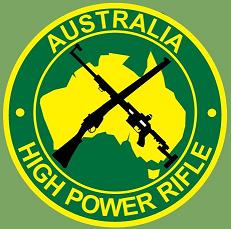
Back to AIHPA Home Page
![]()
Courses Of Fire - Individual Strings for courses of fire
-
IMC - International Service Match Course (50 shot match)
-
VMC - Vintage Service Match Course (40 shot match)
-
TMC - Vactical Match Course (20 Shot match)
-
AMC - Australian Service Match
Course (60 shot match)
-
3PRB - MSD Match Course (50 shot
match)
- TBM - Team Battle Match (120 shots per team)
![]()
Definitions
"Slow Fire"
Slow Fire does
not require much explanation. The shooter takes position on the firing line,
assumes the prescribed position and is allowed up to an average of 1 minute
per shot to complete fire the string. Example, if the string allows
for 2 sighters and 10 shots for record, then the time allowed is 12 minutes.
These times, however, may change for local courses which specifically
nominate a time limit.
“Rapid Fire"
In Rapid Fire, the shooter uses a preparation period to establish
a solid shooting position; then comes to a standing position and, on command, loads
the rifle. When the targets appear, or the command to commence fire is
given, the shooter gets into the firing position, closes the bolt and fires the rounds in the
rifle, reloads the remaining prescribed rounds and finishes the string.
Rapid fire strings typically require the shooter to do, at least, 1 reload.
Shots are scored and groups are spotted at the conclusion of the string.
“Snap Fire"
In Snap Fire, the shooter uses a preparation period to establish
a solid shooting position. Remaining in position, on command, the
shooter will load
the rifle with the prescribed number of shots. When the target appears, or
the command to fire is given, the shooter will engage the target with 1 or 2
shots, depending on the course of fire. Snap fire strings typically do
not require a shooter to perform a compulsory reload.
Shots are scored and groups are spotted at the conclusion of the string.
“Sighters”
Are typically 2
individual slow fire shots given to shooters at the beginning of a string, in the
string position, before
the string or match begins. Sighters are meant to warm their equipment, check sight
alignments and range
conditions. Each single signting shot on the target is marked by a spotting disc
to indicate with greater ease to the shooter the fall or shot on the target. Sighters do not count
towards to the record score.
Sighters are given, unless otherwise stipulated by event
or course of fire, based on 1 or more certain conditions being met.
These conditions are, either:
- There is a change of distance,
- There is a change of target,
- There is a change of position,
- There has been a undue extended break or stoppage in
proceedings,
- Scheduled strings to be back-to-back have been broken
into segments with significant
stoppage in between strings.
Before Rapid Fire and Snap Fire strings, these shots are completed on a 1 minute per shot "sighter period" - typically 2 minutes for 2 sighter shots. During this period, the targets will remain in position for the shooter to align sights, make adjustments to their rifle or position, and may continue to dry fire.
The proceeding string should commence within, or as close as possible to, 1 minute after the sighter period has expired.
Note:
NRA Competition: Sighters are allowed in NRA sanctioned competition.
CMP Competition: Sighters are NOT allowed in CMP
sanctioned competition.
“Warm-Up”
The warm-up
period takes place prior to the sighter period, a string or a match, but is
not allowed at any time during a match (after the match has begun).
Shooters may adopt any supported position, and in a prescribed time at the
discretion of the event organisers, engage the target with warm-up shots.
Typically, the warm-up period will be 3 slow fire shots, where each shot is
marked, in 3 minutes
Note: When the warm-up period has expired and a sighting period is to follow, the sighting shots must be taken in the following string firing position.
"Trial Exposure"
Trial
exposures are given to allow the shooter to see, understand and check the
target movements/presentation for the coming string. But, more
importantly, the trial is to test the capabilities of the pit crew to
execute a target exposure correctly. Things to consider during the
trail are all targets appear together, for the correct time, and turn off
together.
It is recommended that 2 trial exposures are run to ensure the exposure procedure is perfect, and trials shoot continue until the RO and PO are happy with the service. For this reason, the trial must be run PRIOR to the sighting period to avoid delays between the sighting period and the string commencing.
![]()